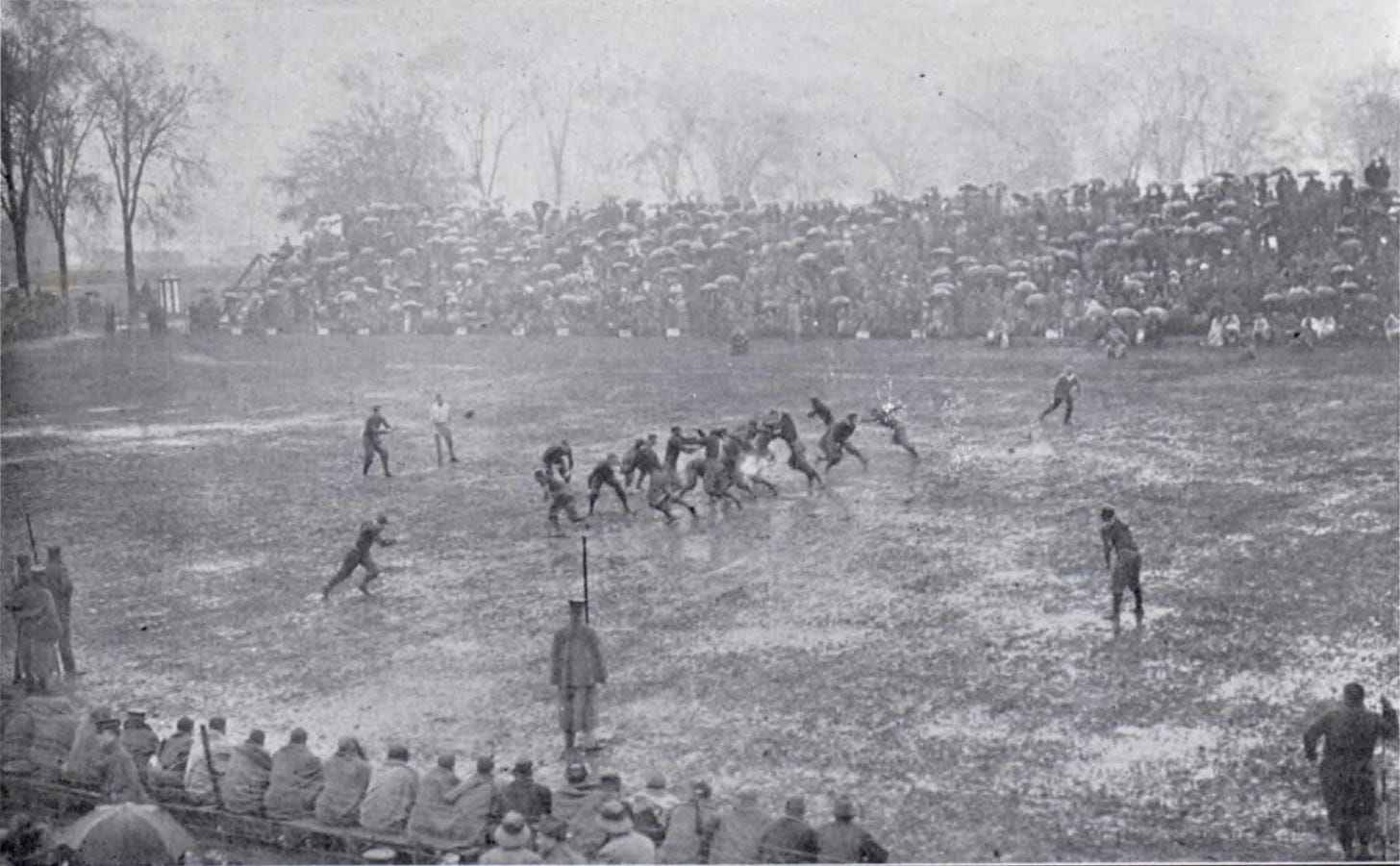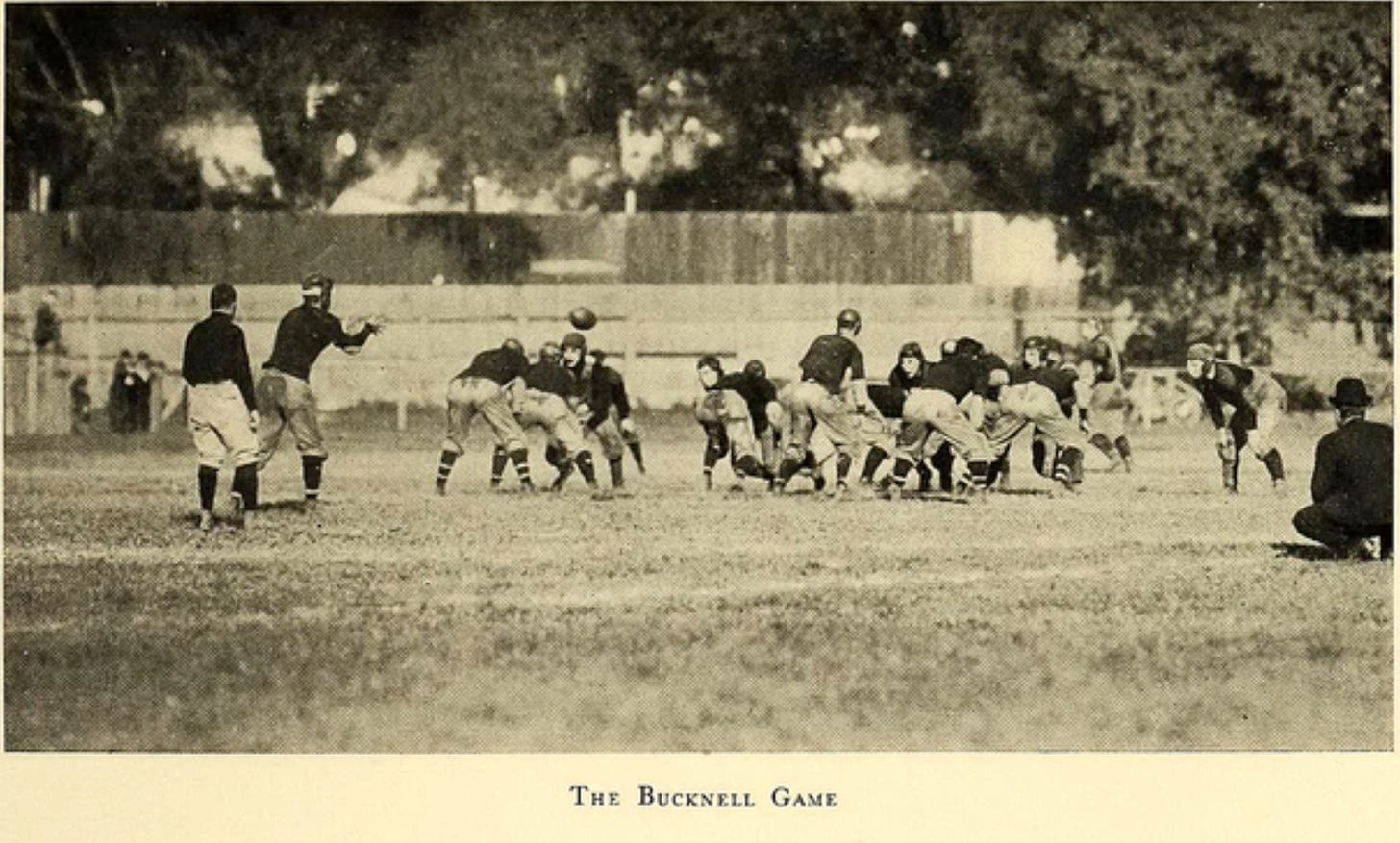Today's Tidbit… 1876 IFA Rule #3: Punt
This is #3 in a series covering football’s original 61 rules adopted by the Intercollegiate Football Association in 1876. One rule is reviewed each Friday.
IFA rules #1 and #2 covered the dropkick and place kick, both occurring after the ball touches the ground, while the punt happens before the leather meets the dirt.
Rule 3: A punt is made by letting the ball fall from the hands and kicking it before it hits the ground.
Under the 1876 rules, punts occurred in three situations:
The punt-out (covered by Rule 29)
The punt-on (covered by Rule 30), and
The standard punt during live play.
The punt-out remained in football until the 1920s, while the punt-on disappeared in the 1880s. We will cover those procedures in due time, so let’s focus on the third use of the punt, which uses the same technique as today but differs tactically.
The most significant change in punting since 1876 was the introduction of the line of scrimmage in 1880. Before that, players punted from anywhere on the field and at any point in the play. Since punting and running were the two methods to advance the ball, effective punters were as valued as top runners. Today, a punt is an acknowledgment of failure. Teams punt after failing to move the ball on offense, but that was not the nature of football in the 1870s or the next half-century.
Think of it this way; when playing rugby and possessing the ball near your goal with the opportunity to punt out of the danger zone, you did so. You boot it as soon as possible. The same rationale applied once the system of downs entered the game in 1882. Teams deep in their territory often punted on first down or second down to get out of trouble, hoping the opponent would make a mistake forty or fifty yards downfield. Punting on early downs disappeared from standard practice only when forward passing made offenses effective enough to warrant using three of the four downs offensively.
Status
Great punters are valued today because they impact field positions when forced to punt. Still, no one wants to punt. No coach who scripts plays includes a punt in the sequence. Every team desires to play sixty minutes without punting. Through WWI, great punters were heroes, and while every team wants a great punter today, they hope his leg atrophies from lack of use.
For previous stories in the series, click Intro, Rules #1 Drop Kick, or #2 Place Kick.
Previous articles on punting:
Football Archaeology is reader-supported. Click here to buy one of my books or otherwise support the site.





